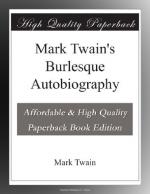|
This section contains 1,930 words (approx. 7 pages at 300 words per page) |

|
The word "burlesque" can refer either to a type of parody or to a theatrical performance whose cast includes scantily-clad women. The second art form grew out of the first: "burla" is Italian for "trick, waggery," and the adjective "burlesca" may be translated as "ludicrous." Borrowed into French, "burlesque" came to mean a takeoff on an existing work, without any particular moral agenda (as opposed to satire). The genre enjoyed a robust life on the French stage throughout the nineteenth century, and found ready audiences in British theaters as well.
The first American burlesques were imports from England, and chorus lines of attractive women were part of the show almost from the start. In 1866, Niblo's Garden in New York presented The Black Crook, its forgettable plot enlivened, as an afterthought, by some imported dances from a French opera, La Biche au bois. Public reception was warm, according to...
|
This section contains 1,930 words (approx. 7 pages at 300 words per page) |

|


